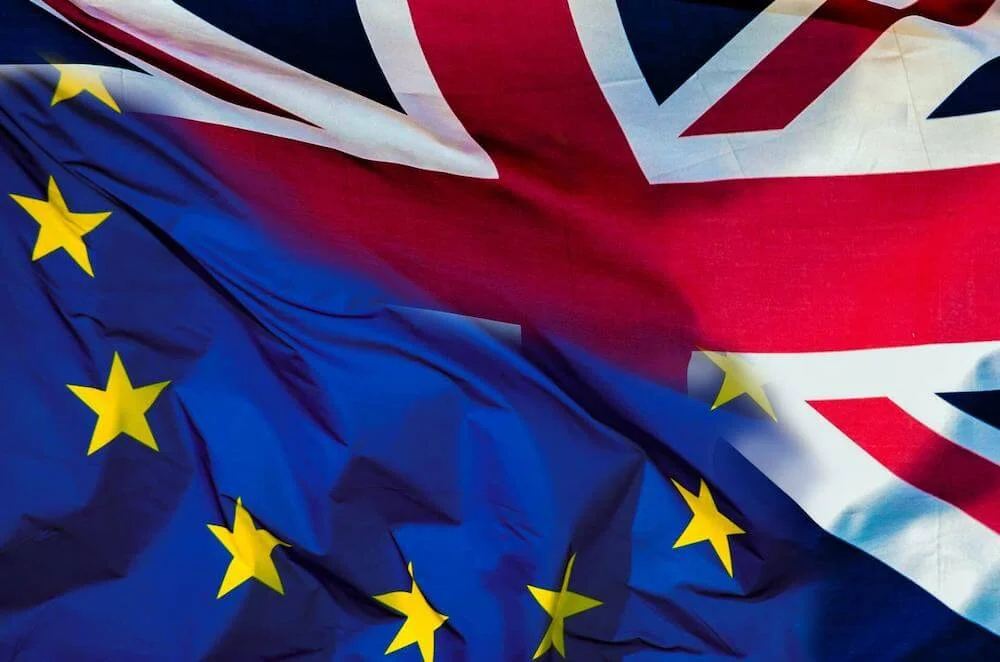
In this guest opinion article, Helen Wong MBE, Corporate Solicitor at Setfords, consider whether it would ever be possible for the UK to rejoin the EU.
Get Brexit Done was the UK’s call to take back control of laws, immigration and their direction in the political and business sphere. It promised a seismic shift such that Bloomsbury commissioned me to write a book for lawyers and businesses giving in-depth legal guidance called Doing Business After Brexit which has been co-authored by all the Brexit specialist lawyers and spanned 440 pages.
However, the reality of our post-Brexit era is somewhat of a damp squib and the opening of a big hole of lack of labour now the ‘cheap labour’ had gone. Deregulation was meant to make Britain more competitive yet taxes and inflation have increased. Despite all the disappointment, the road back to joining the EU firstly is not open to us (no one from the EU has invited the UK back to rejoin) and given the political scraps and scandals that ensue, there isn’t momentum to rejoin.
Furthermore, some say that bridges have been burned due to Boris Johnson’s “reign of chaos”, our reputation and international relations are not what they would need to be in order for us to rejoin. Ministers have focused on attempting to trade with the EU, but the relationship between us and them is significantly fractured.
There are some individuals who think otherwise. The former Brussels chief negotiator Michel Barnier has stated that he believes that the “Door Remains Open” for the United Kingdom to rejoin the EU. But individuals like Derrick Wyatt (retired professor from Oxford) argue that due to the complexity of the UK possibly being one of the biggest contributors if they rejoined and us taking on EU debt, he questions whether at this point we could spot the difference between “a missed opportunity and a poisoned chalice”.
This argument essentially suggests that while we struggle with the complexity that Brexit is bringing us, going back would not necessarily solve our problems, and would possibly even create new ones.
2. How will the NI Protocol be resolved if at all? Brexiters claim it could lead to the break up of the UK as an institution. Are they right?
Firstly, what was the problem of Brexit that the NI protocol sought to address?
The issue is under the Brexit deal, certain goods have to be checked before entering NI. This causes a bit of tension, which creates “burdensome bureaucracy and paperwork”. Only “one-sixth” of goods in NI have a risk of getting into the EU, but all are treated to the full range of processes.
Secondly – what is the NI Protocol?
The NI Protocol was designed to prevent a hard border on the island of Ireland after Brexit where a new goods checkpoint at Northern Ireland sea ports on some products (e.g. eggs, sausages) from Great Britain, effectively creating a new trade border in the Irish Sea.
Then what happened?
The Department for Environment Food and Rural Affairs (Defra) sent a letter out to agri-food manufacturers that the new plan was to remove all customs checks for agr-food goods moving within the UK and encourage frictionless trade within the UK.
There was also planned a dual regulatory system so NI businesses could choose to follow either UK or EU regulations, depending on who they are trading with.
However, the UK Government with no input from Ireland did this unilaterally. Leo Varadkar the tánaiste (Irish deputy PM) on 30th June 2022 (when he was interviewed) said that Number 10 was “siding” with unionists in seeking to scrap parts of the deal agreed in 2019. Arguably, this move undermines the trade relations between the UK and Ireland and strengthens the relationship between NI and the EU.
The DUP said the protocol damages Northern Ireland’s place in the union. Some said the overriding nature of the Government was a strategic mistake for people who want to maintain the union – to continue to impose things that a clear majority of people don’t want means more people will turn away from the union.
Unfortunately, politics have stifled any developments meant to ease red tape on businesses.
This is the worst-case scenario, even “Sinn Féin” said that England should “step up to the plate” and make the Northern Ireland protocol work. This highly suggests that despite the tensions there, the desire to trade and have food accessible is far greater than any real desire to reunite as one nation and split away from the United Kingdom.
3. Can anyone honestly say what the impact of Brexit has been? It may be three years, but the other way to look at that is that it is only three years.
We do not fully know what the impact is, however, we do know that “In the fourth quarter of 2021, goods imports from the EU were down 18% on 2019 levels”. With very few other trade deals to make up for it (mostly with nations like Australia, New Zealand, Switzerland and Japan), this has caused a massive drop in imports and exports.
When paired with rising energy prices, the Office for Budget Responsibility states that the “UK saw a similar collapse in exports as other countries at the start of the pandemic but has since missed out on much of the recovery in global trade”. This is an issue as it will take years to recover. To demonstrate, the British Chambers of Commerce has a very bleak prediction that “The annual expectation for GDP growth in 2023 is now -1.3%”.
It’s also difficult to separate the difficulties due to Brexit as opposed to difficulties brought on by the pandemic and now the war in Ukraine. The pandemic and lockdowns “caused a severe recession”, which will have had an effect on the British economy. This does not mean there are not some clear-cut issues, like the ending of the “free movement of people between the UK and European Union” which meant a lot of EU migrant workers were forced to go back to their home countries, which led to staff shortages.
So with fewer workers, and fewer imports/exports, there is a hesitation to invest in the United Kingdom as there isn’t a guarantee of return. In fact, the BBC claims that “investment has stalled since the referendum” due to uncertainty and “the unsettled issue of the Northern Ireland Protocol”. This is a huge problem as investment could help with our supply and demand issues when it comes to the issues aforementioned with trade and GDP.
4. What are the implications further down the track?
It is difficult to look forward and actively predict as there will be factors that are unforeseeable (much like the pandemic or the war in Ukraine was) but based on what we know so far, there is optimism when it comes to trade and some new trade deals with other countries. One proposed is India, which is suggested to be advantageous for the UK due to its economic growth “benefit from lower trade costs, boosting economic activity in both countries’ areas of competitive strength”.
When this is paired with the freeports (mentioned later), there is optimism to be had with the future of trade and the UK.
We can also make some guesses as to what the future could look like based on some of the ideas that the government have put out that would greatly benefit the economy. For example, Rishi Sunak suggested eight freeports and two greenports in order to ease up trade and hopefully make the United Kingdom look more enticing to trade with.
The government also hopes that it will “create thousands of high-quality jobs in some of our most disadvantaged communities” contributing to the ever-quoted “levelling up” scheme. If this works and allows money to flow into these communities, it will lead to economic growth.
With being away from the EU, there are many other quality-of-life changes the United Kingdom can also make. Two examples would be the intention to allow for gene-bred crops to make food and to allow us to become a leading nation in the development of AI without EU red tape.
When it comes to crops, the EU has a blanket ban on genetic modification in this way, but scientists have been able to modify tomatoes to make them a richer source of vitamin D. This is significant as many people within the UK suffer from vitamin D deficiency. This is one example of what we can achieve without having to deal with EU laws or EU bureaucracy.
All EU legislation will be amended, repealed, or replaced under the new Brexit Freedoms Bill introduced to Parliament on Thursday 22 September 2023, which will end the special legal status of all retained EU law by 2023, and give the UK the opportunity to develop new laws that best fit the needs of the country and grow the economy.
This is not an easy task given that so much of EU law is entrenched in domestic laws. All areas from tax, contracts, employment, healthcare, property and intellectual property to family law will be impacted in some shape or form.
The rationale for this is to remove years of burdensome EU regulation in favour of a more agile, home-grown regulatory approach that benefits people and businesses across the UK. By removing these legal restraints and replacing them with what works for the UK, businesses and the economy can innovate and grow to new levels.
As a result of the bill, it is estimated that around £1bn worth of red tape will be removed, giving businesses the confidence to invest and create jobs, while transforming the UK into one of the best-regulated economies in the world. Whether this transpires – watch this space.
Related and recommended

Steve Brass explains how he promotes psychological safety at work to foster innovation

Major career setbacks can be moments to take stock and recalibrate, according to US tech boss Sanjay Poonen

Taking a proactive approach to a future sale can help boost value, avoid costly mistakes and prepare you personally for the transition

Communications specialist Tom Laranjo shares advice on how to integrate artificial technology into the workplace

